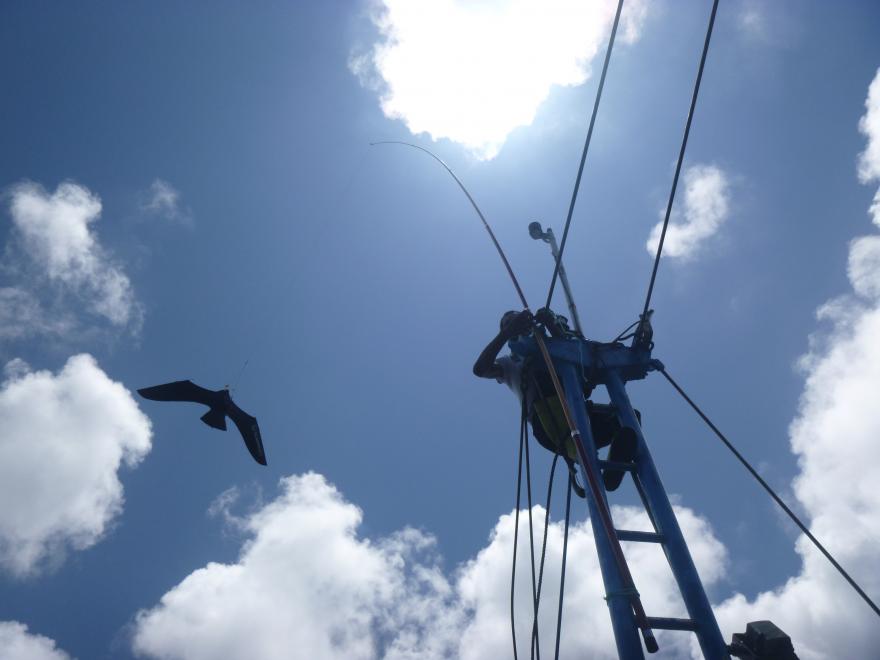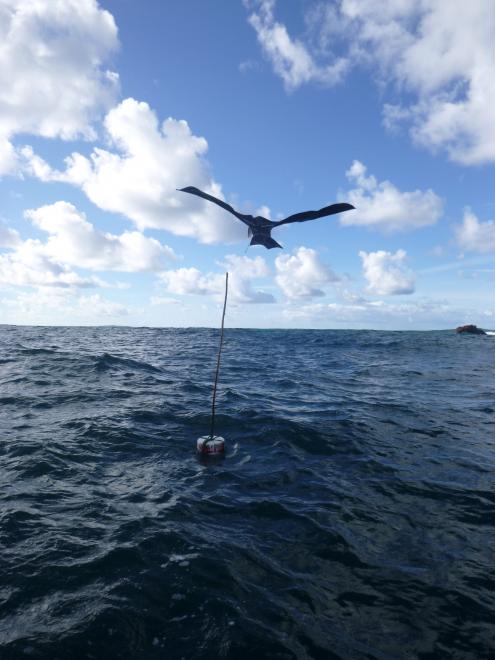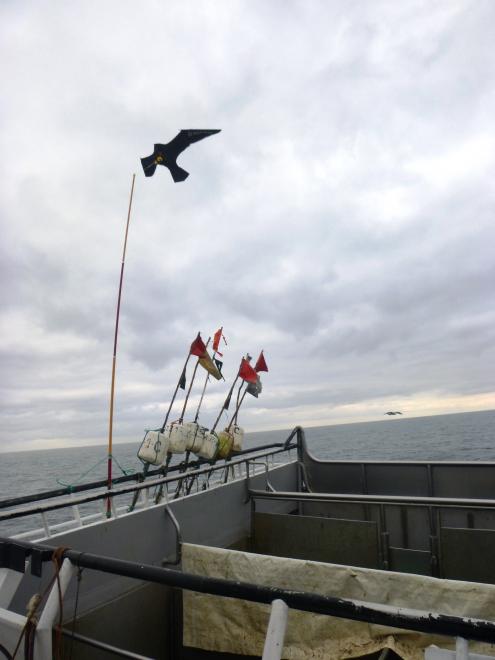SPEA (Sociedade Portuguesa para o Estudo das Aves) is the national partner of BirdLife International in Portugal. Ana Almeida is SPEA’s Marine Conservation Officer. She wrote last month to ACAP Latest News describing trials of a new device to reduce seabird bycatch in fisheries: “we have first trialled the scary bird device (kite) in purse seiners, around a designated area for birds (Berlengas SPA [Special Protection Area]) and it showed positive results in decreasing interactions between birds and the boat/gear, especially for gulls. The kite was attached to the main mast and not used all the time, to avoid habituation. These first trials were taken under LIFE Berlengas Project. This project is now reaching an end and we are finalizing reports and soon we will be submitting a paper with some of the obtained results. Currently, we have a new project (MedAves Pesca) in the same area, to continue trialling mitigation measures for seabird bycatch. We are now testing the scary bird device in longliners and gillnets."

The bird kite is flown above a purse seiner

Testing the kite with a long liner ...

... and with a gill net
Photographs by Elisabete Silva
More information on the 2018-2020 MedAves Pesca project edited from text in Portuguese from SPEA’s website comes courtesy of Google Translate:
“Bycatch of seabirds by fishing vessels is currently a major conservation issue worldwide and is often cited as one of the causes that has led to population declines of different species of seabirds. The most recent estimates point to about 200,000 accidentally caught birds per year in European waters alone.
These incidental catches also have negative impacts on fishers, consuming too much crew time and damaging fishing gear. It is therefore essential to establish partnerships between the fishing industry and the scientific community to find joint solutions.
Pioneering studies in Portugal have identified that gillnets, longlines and purse-seine nets are the fishing gear with the greatest impact on seabird populations. Despite recent advances, there are still large knowledge gaps on this issue in our territory, which prevents a realistic assessment of the true impact of this threat.
This project, which runs from July 2018 to July 2020, aims to bridge part of this knowledge gap by analysing the overlap between fishing activity and seabirds in all five Special Protection Areas (SPAs) of the continent, thus identifying the areas most vulnerable to accidental catches. For the Berlengas Islands SPA, where SPEA has been working in recent years, we already have this more detailed information available, and we can go a step further with the development and testing of mitigation measures for accidental catches.
Two innovative measures for gillnets and longlines will be developed and tested on board fishing vessels. This work will be carried out in close collaboration with the fishing community of Peniche and aims to find fishery-accessible solutions that are easily implemented and will reduce bird catch in fisheries.”
Portugal is neither a Party to ACAP nor supports a breeding population of an ACAP-listed species. However, the ACAP-listed and Critically Endangered Balearic Shearwater Puffinus mauretanicus, a Spanish breeding endemic, regularly migrates into Portuguese waters where it is at risk to fisheries (click here).
With thanks to Ana Almeida and Marc Parchow.
Reference:
Oliveira, N., Henriques, A., Miodonski, J., Pereira, J., Marujo, D., Almeida, A., Barros, N., Andrade, J., Marçalo, A., Santos, J., Benta Oliveira, I., Ferreira, M., Araújo, H., Monteiro, S., Vingada, J. & Ramírez, I. 2015. Seabird bycatch in Portuguese mainland coastal fisheries: An assessment through on-board observations and fishermen interviews. Global Ecology and Conservation 3: 51-61.
John Cooper, ACAP Information Officer, 02 December 2019

 English
English  Français
Français  Español
Español